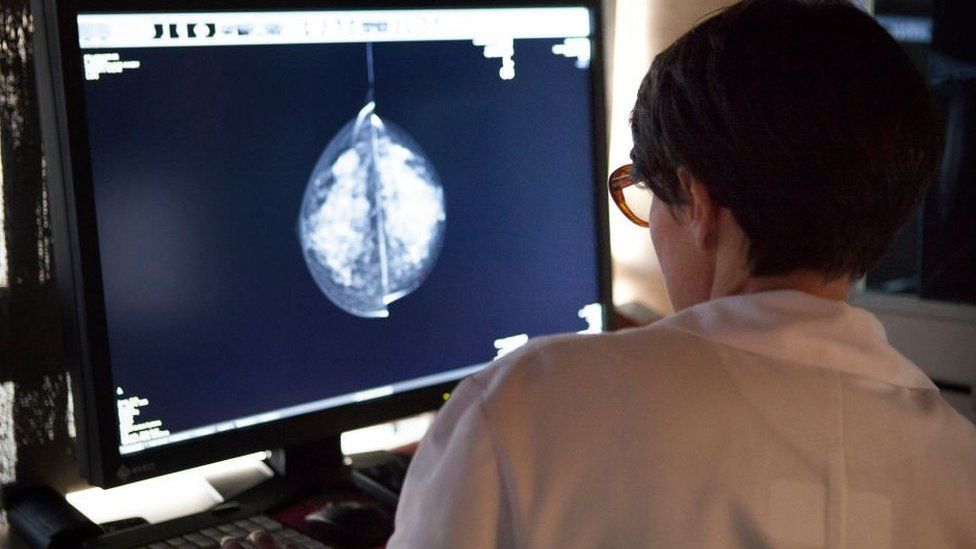ARTICLE AD BOX
 Image source, Getty Images
Image source, Getty Images
Artificial intelligence can "safely" read breast cancer screening images, a Swedish study suggests.
Researchers led by a team at Lund University found computer-aided detection could spot cancer at a "similar rate" to two radiologists.
But they said more research was needed to fully determine whether it could be used in screening programmes.
Experts in the UK agreed AI offered huge potential in breast cancer screening.
This is not the first study to look at the use of AI to diagnose breast cancer in mammograms - X-rays of the breast.
Previous research, including some carried out in the UK, has looked retrospectively, where the technology assesses scans which have already been looked at by doctors.
But this research study saw AI-supported screening put head-to-head with standard care.
The trial, published in Lancet Oncology, involved more than 80,000 women from Sweden with an average age of 54.
Half of the scans were assessed by two radiologists, known as standard care, while the other half were assessed by the AI-supported screening tool followed by interpretation by one or two radiologists.
In total, 244 women from AI-supported screening were found to have cancer, compared with 203 women recalled from standard screening.
And the use of AI did not generate more "false positives" - where a scan is incorrectly diagnosed as abnormal.
The false-positive rate was 1.5% in both the AI group and the group assessed by radiologists.
'Very encouraging'
Lead author Dr Kristina Lang said AI has the potential to be deployed in breast cancer screening, helping to address the shortages of radiologists seen across the world.
But she said more research was needed in this area to fully understand its potential and cost-effectiveness.
"The greatest potential of AI right now is that it could allow radiologists to be less burdened by the excessive amount of reading.
"While our AI-supported screening system requires at least one radiologist in charge of detection, it could potentially do away with the need for double reading of the majority of mammograms, easing the pressure on workloads and enabling radiologists to focus on more advanced diagnostics while shortening waiting times for patients."
An NHS England spokesman said: "This research is very encouraging, and plans are under way to assess the best ways of implementing this technology into the NHS Breast Screening Programme."
Dr Katharine Halliday, president of the Royal College of Radiologists, added: "AI holds huge promise and could save clinicians time by maximising our efficiency, supporting our decision-making and helping identify and prioritise the most urgent cases.
"There is a great deal of research interest in how AI could support reporting for mammograms because they are complex, requiring significant oversight and interpretation by clinical radiologists. The UK's shortfall in radiologists, at 29%, makes this challenging.
"While real-life clinical radiologists are essential and irreplaceable, a clinical radiologist with the data, insight and accuracy of AI will increasingly be a formidable force in patient care."

 1 year ago
120
1 year ago
120








 English (US) ·
English (US) ·